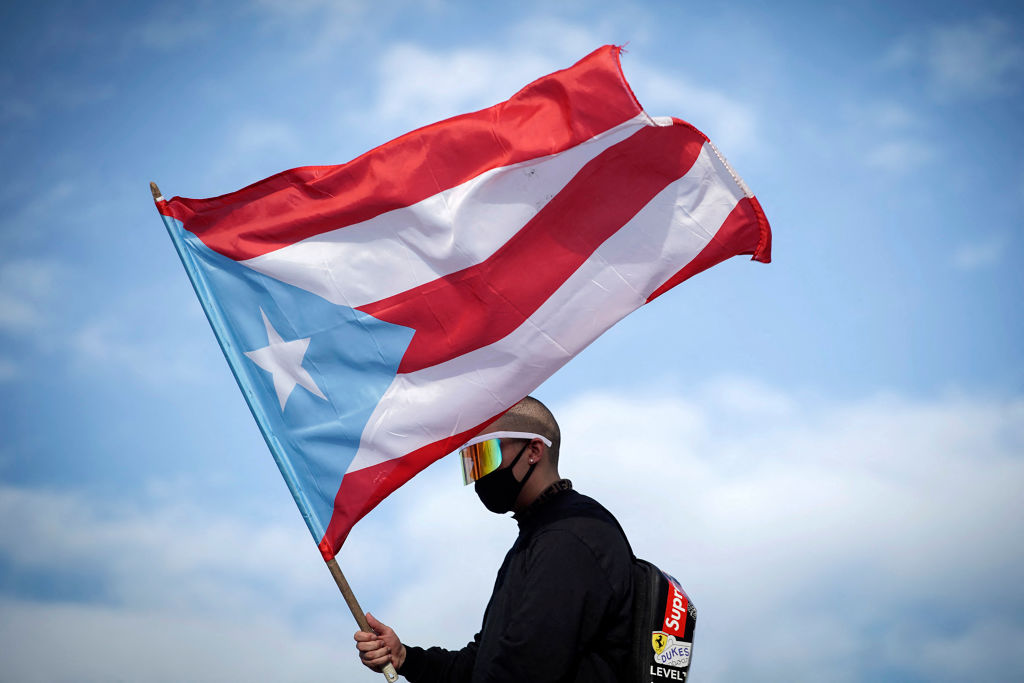The House is moving forward with a plan to give Puerto Rico the ability to determine its political future.
On Thursday, the House voted 233-191 to advance a measure that would give residents of Puerto Rico the ability to change its territorial status.
Puerto Rico Status Act: 233-191 pic.twitter.com/VhBA9NWWX7
— Acyn (@Acyn) December 15, 2022
The New York Times explained the bill “would establish a binding process for a referendum in Puerto Rico that would allow voters to choose among allowing the territory to become a state, an independent country or a sovereign government aligned with the United States.”
“It would also lay out the processes for implementing the outcome of the vote and establish a campaign to educate voters about their options,” it added.
It is not expected to pass the Senate where it would need at least 60 votes to overcome a filibuster.
While the bill received bipartisan support, the majority of House Republicans opposed it. Rep. Tom McClintock (R-Calif.) questioned what the value would be of admitting Puerto Rico as a state.
“Only about 20% of the population is fluent in English. Which means we would be admitting a state whose vast majority is isolated from the national political debate that is central to our democracy,” he argued.
The lawmaker claimed statehood would not solve the island’s economic woes because residents would have to start paying all federal income taxes.
Finally, McClintock asked, “How does it benefit America to admit a state that would be the most indebted, uneducated, poorest, and least-employed state in the nation?”
Rep. Tom McClintock (R-CA) argues Puerto Rico should not be a U.S. state, in part, because not enough residents speak fluent English:
— The Recount (@therecount) December 15, 2022
“How does it benefit America to admit a state that would be the most indebted, uneducated, poorest, and least-employed state in the nation?” pic.twitter.com/IXfWMu3CTz
Sixteen Republicans voted for it, including Reps. Don Bacon (Neb.), Liz Cheney (Wyo.), Rodney Davis (Ill.), Brian Fitzpatrick (Pa.), Mayra Flores (Texas), Andrew Garbarino (N.Y.), Anthony Gonzalez (Ohio), Jaime Herrera Beutler (Wash.), Bill Huizenga (Mich.), Dave Joyce (Ohio), John Katko (N.Y.), Dan Newhouse (Wash.), Bill Posey (Fla.), María Elvira Salazar (Fla.), Lloyd Smucker (Pa.) and Fred Upton (Mich.).
House Speaker Nancy Pelosi (D-Calif.) hailed the passage of the bill in a statement as she said, “Today’s passage of [HR 8393] is a key step to ensure Puerto Rico’s future is one of its own choosing.”
“With the Puerto Rico Status Act, the Democratic House has proudly voted to tear down the vestiges of colonialism – honoring the dignity, equality and basic rights of more than three million American citizens,” she continued. “For more than a century, Puerto Rico has been governed under a political system imposed by outside forces rather than established by its own people.”
She added, “The Puerto Rico Status Act will empower the people of Puerto Rico to choose for themselves how to move forward: statehood, independence or sovereignty in free association with the United States.”
Today's passage of #HR8393 is a key step to ensure Puerto Rico’s future is one of its own choosing.
— Nancy Pelosi (@SpeakerPelosi) December 15, 2022
With the Puerto Rico Status Act, the House voted to tear down the vestiges of colonialism – honoring the dignity, equality and rights of more than 3 million American citizens.
The Puerto Rico Status Act will empower the people of Puerto Rico to choose for themselves how to move forward: statehood, independence or sovereignty in free association with the United States.
— Nancy Pelosi (@SpeakerPelosi) December 15, 2022
In a speech on the House floor, Rep. Alexandria Ocasio-Cortez (D-N.Y.) declared, “Today, for the first time in our nation’s history, the United States will acknowledge its role as a colonizing force and Puerto Rico’s status as an extended colony.”
She added the legislation does not include the option for Puerto Rico to choose to keep its “unsustainable colonial status” as a territory.

























 Continue with Google
Continue with Google